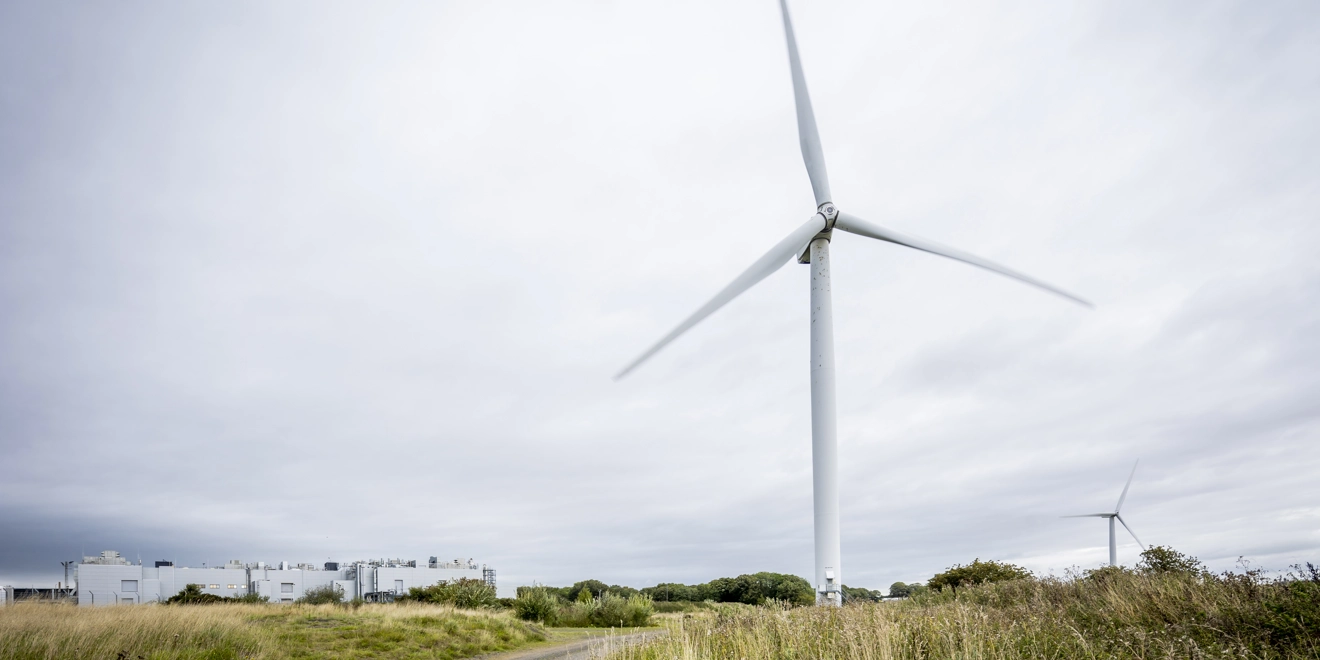Environment
To help get ahead of disease and deliver real human health impact we need to look broadly and deeply at the interconnections of climate, nature and health.
We’re committed to a net zero, nature positive, healthier planet, with ambitious goals set for 2030 and 2045.
Scientific evidence is increasingly demonstrating how climate change and nature loss are impacting the world and human health. For example, human health is under threat from air pollution, diseases that pass from animals to humans and threats to water security. Climate and nature changes are testing the resiliency of healthcare systems.
As a global biopharma leader, addressing our environmental impact is fundamental to our purpose. That’s why we have set ambitious climate and nature targets.

Climate
By 2030 we'll have a net zero climate impact.
With regard to energy, our objectives are as follows:
greenhouse gas emissions across our full value chain by 2045
Net 0imported renewable electricity by 2025 and all renewable electricity (imported and generated) by 2030
100%
We have set up the Energy Reduction & Transition Program to achieve these goals: It is a multi-year investment plan. Old buildings are replaced or extensively renovated with new, more efficient technologies. Other units are continuously optimised to increase their energy performance.
Compared to our 2020 benchmark, the carbon emissions of our Belgian sites have decreased by 56%, with a target of reducing them by 80% by 2030.
We are a signatory to the Walloon Government's Carbon Conventions. These are contracts between the Walloon Region and companies under which, since 2002, companies undertake to make ambitious and sustainable improvements to their energy efficiency, reduce their CO2 emissions and increase the proportion of renewable energy.
Soft mobility on our sites
We have introduced a soft mobility policy with the promotion and implementation of structures to encourage travel by bicycle, carpooling and public transport. A large electric recharging system has been installed for company cars. We also organise recurring events such as the Spring Bike Festival and Mobility Week.
Mobility at GSK Belgium
Water
By 2030 we'll have a net positive impact on nature.
With regard to water, our objectives are as follows:
reduction overall water use in our operation by 2030
20%good water management at all our sites by 2025
100%
On our Belgian sites, water consumption has decreased by 29% compared to our 2020 benchmark, surpassing our target of 20%. This achievement was made possible through a series of optimisation projects.
To achieve our water management goal, we will use the best technologies and optimise the cleaning processes of our production units to reduce consumption.
In addition, we aim to close the natural water cycle by reducing the amount of waterproofing and by creating ponds on the site to allow rainwater to infiltrate into the groundwater body.
Waste
All our waste will be recycled and reused by 2030.
Our two key areas of focus for waste management:
reduction of waste by 2030
10%operational waste, including single plastics by 2030
Zero
Compared to our 2020 benchmark, waste reduction is at 15%, with a target of 20%, and the waste circularity rate is at 49%, with a target of 100% excluding exemptions. We are committed to managing our waste responsibly and for over 20 years our waste has not been sent to landfill (Zero Landfill).
There are more than 30 different waste streams in place at our sites. Our strategy is firstly to reduce the quantity of waste, then to re-use and finally to recycle.
Some of the initiatives implemented at our sites in Belgium:
- Recycling of clothing from production areas
- Selective collection and recycling of beverage bottle caps
- Final packaging in cardboard for some departments
- Reduction of single-use plastic for a number of catering items
- Optimisation of industrial glass recycling (laboratory glassware)
- Cigarette butts
Biodiversity
Our goal is to generate a positive impact on biodiversity at all our Belgian sites by 2030.
The Belgian sites have been certified as a "nature network" for more than ten years. 27% of our sites are green spaces, including wooded areas, flower meadows, lawns, etc. We are continuously increasing this space in order to bring nature back to the centre of our sites.
For example, we have large habitat areas on our sites for endangered species in wooded areas that also serve as a recreational area for our staff. Our efforts are carried out under the guidance of recognised local and international experts such as Natagora.



